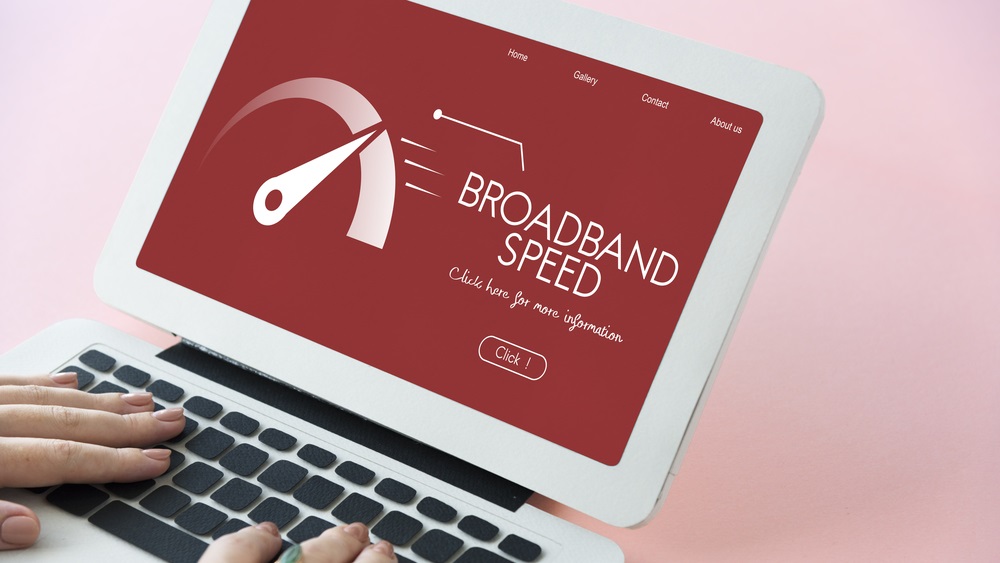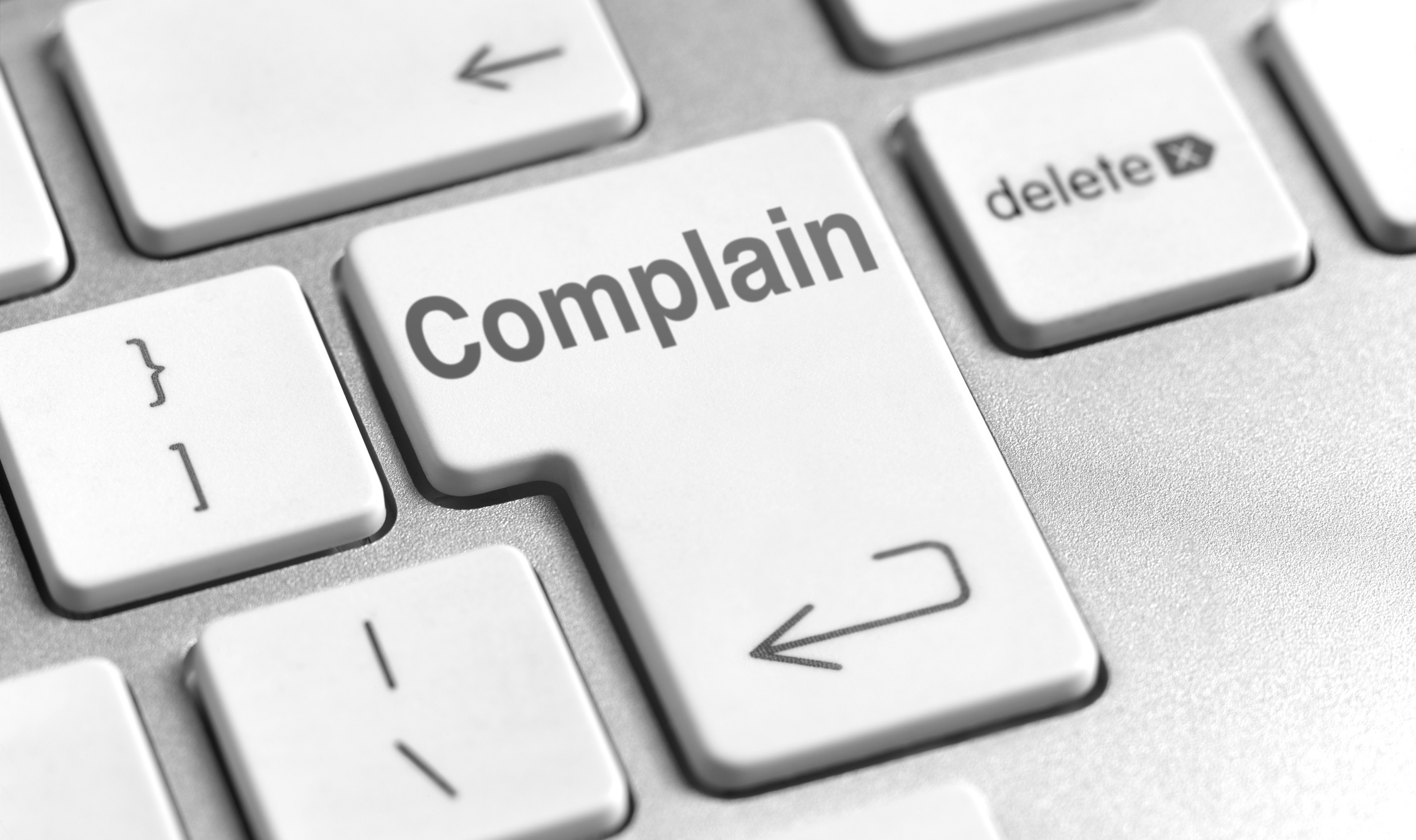
If your broadband service isn't up to the standard you expected, or if you're suffering from sudden and persistent outages, then you're well within your rights to complain to your provider.
When you take out a new broadband deal, your provider usually offers certain guarantees, such as a minimum speed guarantee and a guarantee of service. If they don't meet these minimum standards, you need to let them know immediately.
Regardless of whether you have a general complaint about the speeds you're receiving or a specific issue that needs to be dealt with urgently, you need to inform your provider using their feedback process. If they don't resolve the issue in a satisfactory manner, you can then report them to an ombudsman.
Here's everything you need to know about complaining to a broadband service provider, including the steps you need to take.
Before you complain
Before you complain to your internet service provider, you should confirm that you cannot fix the problem yourself. You should also check your contract carefully to ensure that your provider is acting outside of the agreed terms.
Here are all the steps you should take before contacting your broadband provider, depending on the exact issue you're facing:
Broadband speeds and outages

If your connection keeps cutting out and you're left without broadband, then contact your provider immediately. This is because it's likely there's a serious issue with your connection that you'll be unable to fix yourself.
However, if your broadband speeds are slow, it's worth trying the following fixes before you send a formal complaint:
- Check the quality of the internet connection on all of your devices to ensure it isn't an issue with the equipment you're using, rather than the connection itself
- Run a broadband speed test and compare the speed you're receiving to your minimum speed guarantee
- Reset your router and reconnect your devices
- Move your router to somewhere more open and central in the home. Your signal may be slow because it's being blocked
Broadband billing, payments and contract disputes

If you receive an unexpected bill or your bill is much higher than usual, then you'll likely want to complain to your broadband provider about it. However, before you call them or speak to them via live chat, you should first check the details in your contract.
Nowadays, broadband providers are allowed to hike the price of deals for customers who are under contract, as long as they explicitly state that they may do this in the contract before the customer signs up. For this reason, most internet service providers add the annual CPI rate of inflation plus around 3% to all of their deals annually.
If you read your contract and find that your provider has increased the price by an amount they had specified they were allowed to do so, then there's very little you can do except make a note of when your contract ends so you can leave as soon as possible.
However, if there's no mention of a change to your payments in the agreed terms, then you can complain to them about the change. You may even be able to switch to another provider without paying a fee.
It's worth also mentioning here that your provider may have increased the monthly bill because you're now out of contract. This is incredibly common and the majority of providers hike the fee substantially when a customer's contract has finished, as their introductory deal has ended. The good news here is that if you're out of contract and you have a complaint, you can simply find a better broadband deal and leave free of charge.
Your provider is legally obliged to notify you when your contract is coming to an end, but you may have missed it. After all, it feels like we all receive hundreds of marketing communications each day. So, before you complain, it's worth checking your contract to see when it will come to an end.
Customer service

If you called your provider's customer service team about this issue or a different one and they were rude to you, unprofessional or hard to contact, then you're also within your rights to complain about how they dealt with your issue or query.
It may seem self-defeating to call the company again and go through the customer service staff, but it's actually a process that's well worth doing. These companies monitor and record all calls, so they'll have access to the conversation you're unhappy about. You can also specify that you'd like to speak to a manager or someone at a level above the person you initially spoke to.
If this person agrees that the original issue was not resolved satisfactorily, you may receive a discount or some bill credit to make up for it.
Gather the relevant evidence
Finally, before you pick up the phone or start a live chat, make sure that you have all of the relevant information you need to hand. Documents you'll need to collate before you get in touch include:
- A list of all your account details
- A document that outlines all the problems you've been facing, including a list of dates and times when you've experienced the problem
- A copy of your contract with the terms you agreed to
- A list of the dates and times you've spoken to the company about the issue previously. This should also include the names of anyone you spoke to (if relevant)
- Ofcom policies that relate to your case (if there are any)
Contacting your broadband provider

Now, it's time to contact your broadband provider's customer service team. How you'll do this will depend on your chosen provider.
All broadband providers will have a complaints policy or procedure in place. This should be freely available on their website. It will list how to contact them, as well as the protocol they follow when dealing with a complaint.
You can usually contact your provider via various methods, including email, phone and live chat.
Generally speaking, where possible, it's best to call your provider. This is because it's usually easier to appeal your case while speaking to someone than it is by using either email or live chat.
While speaking to the provider
The vast majority of customer service staff are incredibly friendly and helpful. After all, they'll deal with problems like yours every day. In fact, it's more than likely that they'll offer you an acceptable resolution while you're on the phone.
When you're speaking to this member of staff, you should remain calm and level headed. When you're encountering problems and you're frustrated, it's easy to get angry. But, speaking angrily is not going to get your problem resolved any quicker. Plus, if you're aggressive or you swear, the member of staff will be within their rights to hang up.
Instead, speak calmly and slowly, referring to the notes you have. Thank the member of staff for helping you when possible and, if you're still unhappy with the response, ask that the issue be escalated to a manager or senior team member.
At this point, your complaint will usually be reviewed by a supervisor or manager in customer services, who will decide whether it should be passed to a specific department or someone higher up the chain.
Taking your complaint further

Called your provider's customer service team and you're unhappy with their response? It's time to escalate the issue to an independent body.
When to contact the ombudsman
All companies offering services to individuals or small businesses of fewer than ten employees must be members of an Alternative Dispute Resolution (ADR) scheme. For phone, broadband and mobile phone companies, this is either CISAS or the Communications Ombudsman.
Escalating your complaint to your provider’s communications ombudsman could help you get a more favourable resolution. If the ombudsman finds in your favour, you may receive an explanation or apology, changes to your contract or financial compensation.
But, before you contact the relevant ombudsman, one of two things must happen:
Firstly, you may receive a 'deadlock letter' from your provider. This confirms that you've exhausted all options with their complaints department and that the two of you have been unable to reach a satisfactory conclusion. When you have this letter, you have 12 months to contact the ombudsman and make your complaint.
Secondly, it may have been more than eight weeks since you first contacted your provider about the issue. To contact the ombudsman, you'll need to prove the date you officially raised your complaint.
How to contact the broadband ombudsman

There are two broadband ombudsman that cover UK-based providers: Ombudsman Services and the Communication & Internet Services Adjudication Scheme (CISAS). Here's where you can go depending on which provider you have:
To contact Ombudsman Services, click here. Alternatively, to complain to CISAS about an ongoing issue, click here.
Contacting Ofcom
As you may be aware, Ofcom is the UK's telecoms regulator and broadband watchdog. However, it doesn't take specific action based on one complaint.
That said, it's usually still worth registering your complaint with Ofcom. This is because the regulator regularly publishes the number of complaints it receives about each broadband provider. This means that, if you complain to Ofcom, you can hold your provider accountable in the watchdog's quarterly report.
Your case won't get any specific attention by taking this action. But it could help inform future policy decisions from Ofcom. It could also help the regulator highlight a trend in how a certain provider treats its customers and sells its products.
You can contact Ofcom by calling its advice and complaints hotline on 0300 123 3333 or 020 7981 3040, or by visiting its mobile, home phone and internet service complaints page.







